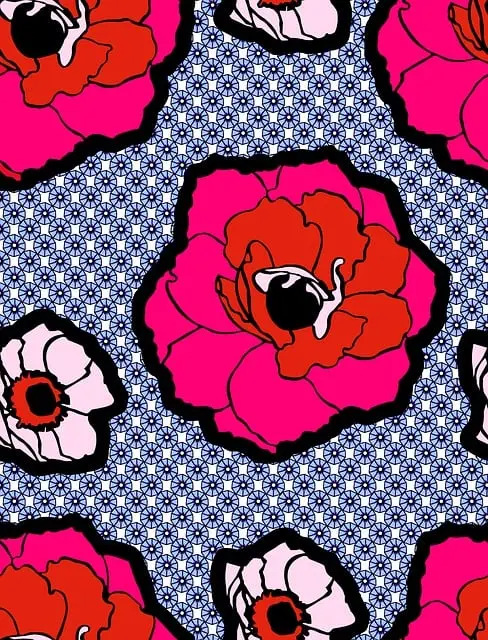Kratom, derived from the Mitragyna speciosa tree and traditionally used in Southeast Asia for its calming properties, can be a thoughtful addition to self-care routines aimed at managing anxiety when supervised by a healthcare professional. For effective anxiety relief, it's important to integrate kratom with other wellness practices like meditation, yoga, and deep breathing, as well as maintaining a balanced diet, regular exercise, and adequate sleep. Tailoring the use of kratom, particularly choosing strains like Maeng Da or Bali that offer different alkaloid profiles, is crucial for personalized anxiety management. Dosage should be approached cautiously, starting with low amounts to understand one's sensitivity before adjusting as necessary. A holistic approach combining these elements can amplify kratom's benefits for managing anxiety. It's imperative to consult with a healthcare provider due to the variability in individual responses and the legal status of kratom. This comprehensive strategy emphasizes the role of kratom within a broader self-care framework, highlighting the importance of mindfulness and adaptability in personal health care plans.
Exploring the art of self-care, this article delves into the integration of Kratom into your daily routine, particularly for those navigating anxiety. We’ll guide you through incorporating mindfulness practices alongside Kratom to enhance your anxiety management strategies. Additionally, we’ll offer insights on personalizing this approach to suit your unique needs and promote a balanced self-care regimen. Embark on a journey to wellness with ‘Kratom for Anxiety’ as your compass.
- Integrating Kratom into Your Self-Care Routine for Anxiety Management
- Daily Practices: Combining Mindfulness and Kratom for Optimal Anxiety Relief
- Personalized Approaches: Tailoring Kratom Use in Your Self-Care Regimen for Anxiety
Integrating Kratom into Your Self-Care Routine for Anxiety Management

Including Kratom in your self-care routine, particularly for those dealing with anxiety, can be a thoughtful approach to holistic wellness. Kratom, a botanical derived from the leaves of the Mitragyna speciosa tree native to Southeast Asia, has been traditionally used for its potential calming and energizing effects. For individuals seeking natural alternatives to manage anxiety symptoms, integrating Kratom into one’s daily self-care practices can offer a soothing balance. It’s important to approach this integration with caution, as the optimal dose and strain vary per person and the appropriate use should be in accordance with the guidance of healthcare professionals.
When considering Kratom for anxiety management within your self-care routine, it’s crucial to prioritize mindfulness and consistency. This plant compound can influence mood and stress responses, but its effects are most beneficial when used as part of a comprehensive self-care strategy that includes stress-reduction techniques such as meditation, yoga, or deep breathing exercises. Additionally, maintaining a balanced diet, engaging in regular physical activity, and ensuring adequate sleep contribute to the overall efficacy of Kratom for anxiety relief. It’s essential to create a supportive environment where mental wellness is a priority and to regularly reassess your self-care practices to ensure they align with your evolving needs and well-being goals.
Daily Practices: Combining Mindfulness and Kratom for Optimal Anxiety Relief

Personalized Approaches: Tailoring Kratom Use in Your Self-Care Regimen for Anxiety

Integrating kratom into a self-care routine for managing anxiety can be a highly personalized approach, one that requires careful consideration of individual needs and responses. Kratom, derived from the leaves of the Mitragyna speciosa tree, has been traditionally used in certain cultures for its potential calming effects. For those exploring kratom as part of their self-care regimen, it’s crucial to select strains that align with their specific anxiety symptoms and preferences. Maeng Da kratom, for instance, is often favored for its balanced alkaloid profile that may offer both stimulating and relaxing effects. On the other hand, Bali kratom is renowned for its sedative properties, making it a popular choice for individuals looking to ease into relaxation and reduce feelings of anxiety.
It’s important to approach the use of kratom with caution, as dosage plays a significant role in determining its impact on anxiety levels. Users should start with low doses to gauge their sensitivity and adjust accordingly to avoid overstimulation or adverse effects. Additionally, incorporating kratom into a comprehensive self-care routine that includes mindfulness practices, regular exercise, a balanced diet, and ample rest can enhance its benefits for anxiety management. Consulting with healthcare professionals before integrating kratom into any health regimen is advisable to ensure safety and efficacy, especially given the nuances of individual physiology and the legal status of kratom in various regions.
Incorporating Kratom into self-care routines can be a beneficial approach for individuals seeking natural anxiety management. This article has explored the integration of Kratom within daily practices, emphasizing the synergy between mindfulness and its use for enhancing anxiety relief. Additionally, personalized self-care regimens tailored to individual needs were highlighted as crucial for effective Kratom use in managing anxiety. It is clear that with careful consideration and professional guidance, Kratom for anxiety can be a valuable component of a well-rounded self-care routine. As you embark on this journey, remember to prioritize your well-being and explore the various ways Kratom can complement your mental health practices. Always consult healthcare professionals before making any changes to your self-care or treatment plan.






